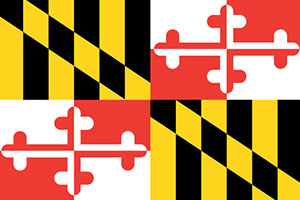Balancing Incentive Program
In early 2012, CMS awarded Maryland $106.34 million through September 2015 in BIP funding. Maryland was the second state (after New Hampshire) to be awarded BIP funding. (Source: CMS Balancing Incentive Program website)
BIP application (2/10/2012)
Award Letter (3/20/2012)
Structural Change Work Plan (links no longer available)
Section 1915(i) HCBS State Plan Option
As of December 2014, CMS has approved a §1915(i) HCBS State Plan Amendment for Maryland. (Source: Kaiser Section 1915(i) website, 12/2014)
Section 1915(k) Community First Choice Option
On January 6, 2014, Maryland converted to the new Community First Choice Option. Subsequently, on April 2, 2014, CMS approved the state’s CFCO SPA, effective January 1, 2014. (Source: Kaiser CFCO website, 5/2014; Medicaid SPA website)
Approved CFCO SPA (4/2/2014)
Health Homes
On September 27, 2013, CMS approved Maryland’s proposed Health Home State Plan Amendment for Health Homes targeting individuals with opioid substance use disorder and the risk of developing another chronic condition; or one or more serious and persistent mental health conditions. (Source: Medicaid.gov; CMS Health Home Website, ; CMS Health Homes Matrix, 6/2014)
Health Home State Plan Amendment (Approved 9/29/13)
State Demonstration to Integrate Care for Dual Eligible Individuals
On May 15, 2015, the State of Maryland issued a Request for Proposals for the development of a Medicaid Integrated Delivery Network for Dually-Eligible Individuals. The deadline for submissions is June 18, 2015. (Source: dhmh.maryland.gov, 5/15/2015)
On July 6, 2015, OpenMinds reported that the Maryland Department of Health and Mental Hygiene (DHMH) is in the process of establishing an Accountable Care Organization-like (ACO) model for dual eligible individuals, or those that are jointly eligible for the Medicare and Medicaid programs. The pilot program would take place in Baltimore City, with hopes to expand to the rest of the state after data and outcomes are reviewed. (OpenMinds, 7/6/2015, link no longer available)
Maryland’s Medicaid Community First Choice (CFC) Program for dual-eligible beneficiaries, which covers personal care and care coordination, was evaluated for cost-effectiveness and sustainability to determine feasibility for a limited personal care and home and community-based service, “Help at Home,” benefit in Medicare. The 3-year analysis used Maryland Medicaid claims data and assessment information, determining that CFC had stable per member per year (PMPY) cost of approximately $21,000 (2014-2016). Enrollment in CFC increased from 6,639 to 11,000 over this time. Eighty-seven percent of the expenses were for personal assistance services with only modest expenditures on administration. Average weekly hours of paid support per enrollee declined to 29 hours per member. This evaluation demonstrated that predictable supportive services with stable PMPY costs for HCBS/LTSS is possible. The CFC program also did not supplant unpaid informal care provided by family and friends. (Sources: The Commonwealth Fund, June 2018 and Health Payer Intelligence, 07-05-2018)

